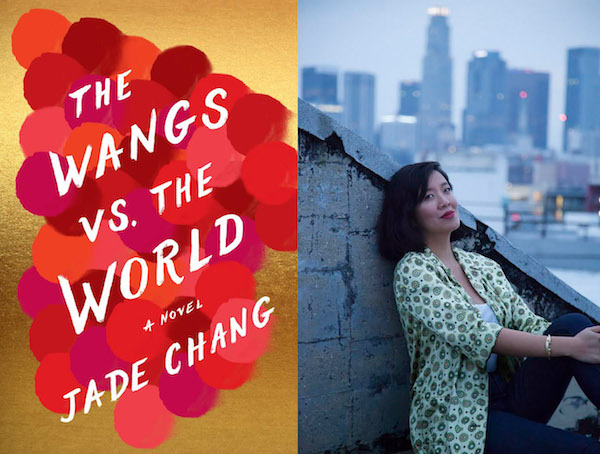“I am very interested in people,” Los Angeles native and novelist Jade Chang told Kore on a preternaturally hot SoCal afternoon as she sat down to discuss her highly anticipated book “The Wangs vs. the World,” an immigrant story that is not your traditional immigrant story.
I met Chang in West Hollywood where we took shelter from the heat at Verve. Surveying the cafe’s eclectic selection, I asked, “Do you like weird?”
She laughed. “I want to learn more things about pretty much every person that I meet. I try to know everything about somebody – I’m like a method writer. I just like to know everything!”
Chang breaks out of the niche with her riches-to-ragtag family by showing more dimensions to the Asian American narrative. “I’m interested in expanding the kinds of stories that we tell about ourselves,” Chang said. “I wanted to tell a story where people see themselves as being completely central to the story of America, who are living lives that are frivolous and complex and serious and joyful and angry – like you and I sitting in this fancy coffee shop in West Hollywood.”
She takes readers on a headlong dive into the life of Charles Wang, a businessman who once upon a time immigrated to America with nothing but his youthful determination and built a cosmetics empire from the synthetic urine churned out by his father’s factory in Taipei. In the financial crisis that follows the turn of the millennium, Charles finds himself in a reverse fairy tale, going from princely to pauper, clutching desperately at his one glass slipper: his family’s ancestral lands in mainland China.
As Charles packs up his second wife and what’s left of their repossessed lives in Bel-Air and embarks on a cross-country road trip to pluck his two younger children Grace and Andrew out of school, and as the family left with no options turns to Saina, the eldest daughter, after her own scandalous exit from high society, the question is raised: Is blood thicker than a wad of crisp, green prosperity?
“I wanted to write about people who didn’t see white people in America as something to measure up to, who didn’t see themselves as outsiders,” Chang said. She feels the bulk of immigrant narratives or novels by people of color that were published in America have fallen into a trap of their own making. “[These] are amazing books but I do think there has been a certain tendency to bring stories to the marketplace that are just stories of pain.”
Her debut novel finds its origins in a financial crisis that thrusts its central characters into an uncertain future, the same one in which she found herself in 2008.
Before “The Wangs” Chang had written another book that found itself at a dead end in a crumbling publishing industry. “It was such a strange time,” Chang reflected. “It was right in the middle of the financial collapse so I got responses from people that were sort of like, ‘We love it but we’re not sure how to sell anything right now.’” Five years of creative blood and sweat later, she is achieving her dreams one by one and moving into writing fiction full-time.
Chang nimbly weaves Mandarin into the English dialogue of her Chinese American characters. One of her big literary influences is Junot Diaz’s Pulitzer-winning novel “The Brief Wondrous Life of Oscar Wao,” which unapologetically flips between a number of languages including Spanish and Japanese. This spoke to Chang. “All kinds of people felt so much kinship with it,” she said. “That made me realize the specific can be universal. I feel most influenced by writers who make me think, ‘Oh, I didn’t know you could do that.’”
When it comes to her titular protagonist, Chang has a special place in her heart, in spite of his bankroll of flaws. She describes Charles as larger-than-life. “There’s a lot that’s abrasive and ridiculous and overbearing and shallow about Charles,” she said. “But in other ways he’s really brilliant. I like someone who knows what they want out of life and isn’t afraid to go for it. In real life I would really admire those qualities.”
Charles’s ambition seems to leave little room for much else, let alone his second wife and three children, but Chang intended from the start to explore each of their perspectives. “[Charles] came almost fully formed in my head, but I’m really interested in birth order theory – oldest, middle, youngest child – and how those roles kind of affect your personality,” Chang said. “I knew I wanted to write a story with three kids in it.” She herself has one younger sister. “I always kind of wished I had an older brother, maybe that’s part of it,” she said.
In the end, the Wang family’s journey is a story about why people do the things that they do.
“I like getting to go into someone else’s world,” Chang said. She’s fond of unfamiliar narratives. “That’s one of the most interesting and rewarding things about life in a modern metropolis. There are so many different worlds all mashed up together.”
The Wangs vs. the World is now available in bookstores and online.







